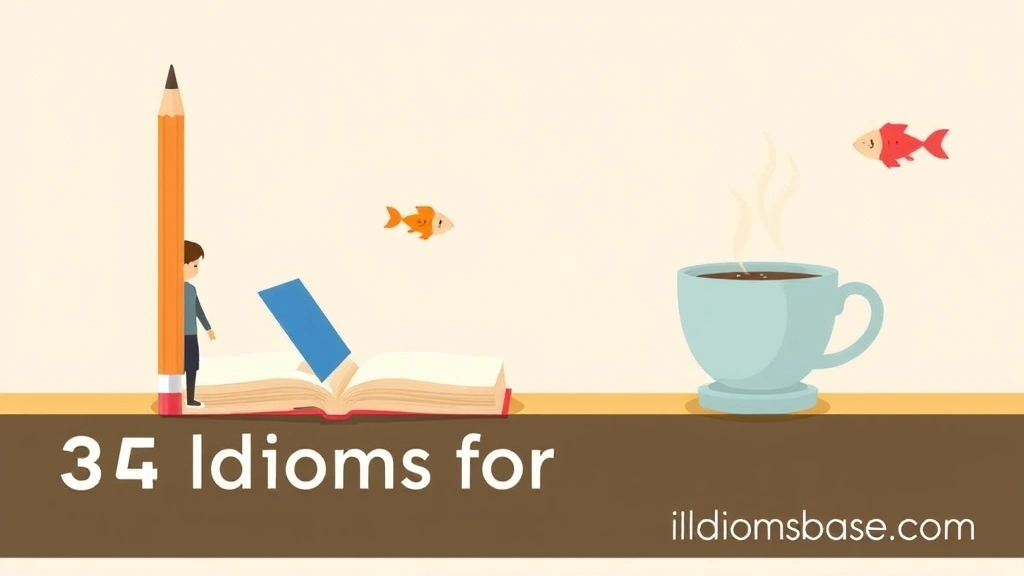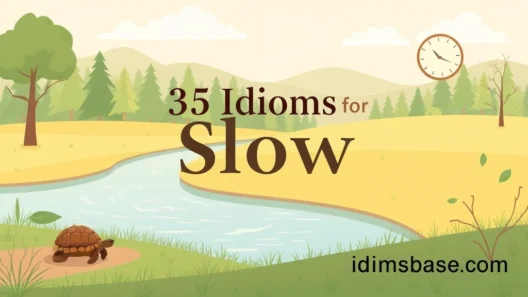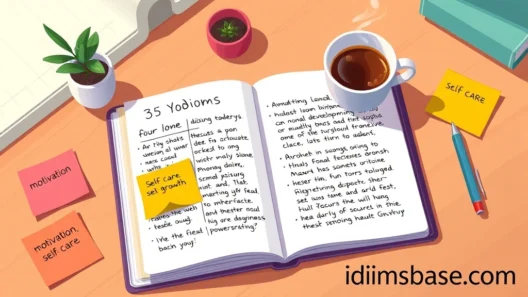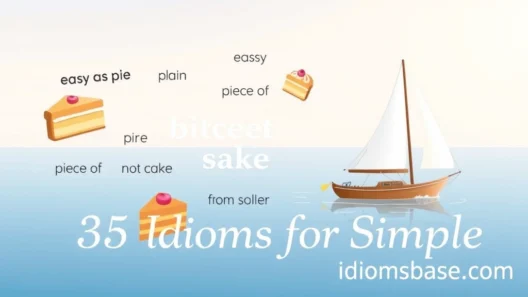Have you ever felt like something was just… tiny? So small it barely registers? Or maybe you've tried to describe something that seems insignificant, but you just can't find the right words? Well, you're in luck! English is bursting with colorful idioms that perfectly capture the essence of "small." These aren't just fancy phrases; they're tiny linguistic gems that add sparkle and precision to your conversations. Let's dive into 35 fantastic idioms that will help you articulate "small" in the most imaginative ways!
Unpacking "Small": Why Idioms Matter
Idioms are like secret codes within a language. They don't always mean what their individual words suggest, and that's the fun part! Learning them isn't just about expanding your vocabulary; it's about truly understanding the nuances of English, connecting with native speakers on a deeper level, and even adding a pinch of humor to your everyday chats. Ready to become an idiom wizard? Let's go!
35 Brilliant Idioms for Describing "Small"
Here's your treasure chest of idioms, each one a perfect fit for expressing something tiny, insignificant, or limited.
- A drop in the ocean: This one means a very small amount compared to what is needed or expected.
- Example: "Our donation was just a drop in the ocean compared to the charity's overall goal."
- A needle in a haystack: Something extremely difficult or impossible to find.
- Example: "Finding my lost earring in this messy room is like looking for a needle in a haystack."
- A grain of salt: To take something with a grain of salt means to be skeptical about it and not believe it completely.
- Example: "You should take his promises with a grain of salt; he often exaggerates."
- Small potatoes: Something or someone of little importance or value.
- Example: "Don't worry about that minor issue, it's just small potatoes."
- A postage stamp: Used to describe a very small area.
- Example: "Their backyard is no bigger than a postage stamp."
- A dime a dozen: Very common and therefore of little value.
- Example: "Good ideas are a dime a dozen; it's the execution that matters."
- A fly in the ointment: A small, irritating flaw that spoils an otherwise good situation.
- Example: "The only fly in the ointment was the terrible weather on our vacation."
- A mere pittance: A very small or inadequate amount of money.
- Example: "He was paid a mere pittance for all his hard work."
- Little by little: Gradually; in small increments.
- Example: "Little by little, she saved enough money for her dream trip."
- In a nutshell: Briefly; in summary.
- Example: "In a nutshell, the project was a complete success."
- On a shoestring budget: With very little money.
- Example: "They managed to travel the world on a shoestring budget."
- A flash in the pan: Something that happens only once or for a short period and is not repeated or continued.
- Example: "His sudden fame was just a flash in the pan."
- A speck of dust: A tiny, insignificant amount.
- Example: "The diamond was just a speck of dust compared to the mountain."
- To make a mountain out of a molehill: To exaggerate the importance of a small problem.
- Example: "It was just a tiny scratch, but he's making a mountain out of a molehill."
- The tip of the iceberg: Only a small, visible part of a much larger problem or situation.
- Example: "The problems we've seen so far are just the tip of the iceberg."
- To cut corners: To do something in the easiest, quickest, or cheapest way, often by sacrificing quality.
- Example: "They cut corners on safety, which led to the accident."
- A drop in the bucket: Similar to "a drop in the ocean," meaning a very small and insignificant amount.
- Example: "My small contribution to the relief fund felt like a drop in the bucket."
- A walk in the park: Something very easy to do.
- Example: "After all that training, the marathon felt like a walk in the park."
- To nip something in the bud: To stop a problem at an early stage before it gets worse.
- Example: "We need to nip this bad habit in the bud before it becomes a real issue."
- To get cold feet: To suddenly become too frightened to do something you had planned to do.
- Example: "He got cold feet about the bungee jump at the last minute."
- To be on a tight leash: To have very little freedom or control.
- Example: "The new manager has everyone on a tight leash."
- To keep a low profile: To avoid attracting attention to oneself.
- Example: "After the scandal, he decided to keep a low profile for a while."
- To run a tight ship: To manage an organization or activity in a very strict and efficient way.
- Example: "The captain runs a tight ship; everything is always in order."
- To make light of something: To treat something as unimportant or humorous.
- Example: "She tried to make light of her broken arm, but it was clearly painful."
- To have a short fuse: To get angry very easily.
- Example: "Be careful what you say; he has a short fuse."
- To be a small fish in a big pond: To be an unimportant person in a large organization or community.
- Example: "Moving to the big city made me feel like a small fish in a big pond."
- To be a shadow of one's former self: To be much less strong, effective, or impressive than one used to be.
- Example: "After his illness, he was a shadow of his former self."
- To be a stone's throw away: To be very close by.
- Example: "The bakery is just a stone's throw away from my house."
- To have one's hands tied: To be unable to act freely because of rules, circumstances, or other people.
- Example: "I'd love to help, but my hands are tied by company policy."
- To be a small wonder: Something that is surprisingly good or impressive despite its small size or apparent insignificance.
- Example: "That tiny car is a small wonder; it's so fuel-efficient."
- To be a lightweight: Someone who is easily affected by alcohol, or someone who is not very strong or influential.
- Example: "Don't give him another drink; he's a real lightweight."
- To have small change: To have coins of low value.
- Example: "Do you have any small change for the vending machine?"
- To be of little account: To be unimportant or insignificant.
- Example: "His opinion was of little account in the final decision."
- To give short shrift: To give little or no attention to someone or something.
- Example: "The manager gave my suggestion short shrift."
- To fall short: To fail to meet an expectation or standard.
- Example: "The team fell short of their goal this season."
How to Use These Idioms Like a Pro
Now that you have this fantastic list, how do you integrate them into your speech and writing naturally?
- Listen actively: Pay attention to how native speakers use these idioms in movies, TV shows, and conversations. Context is key!
- Start small: Pick one or two idioms that resonate with you and try to use them in your daily conversations. Don't feel pressured to use all 35 at once!
- Practice, practice, practice: The more you use them, the more natural they'll feel. Try writing sentences or even short paragraphs using your favorite idioms.
- Don't overdo it: While idioms add flavor, too many can make your speech sound forced or confusing. Use them judiciously for maximum impact.
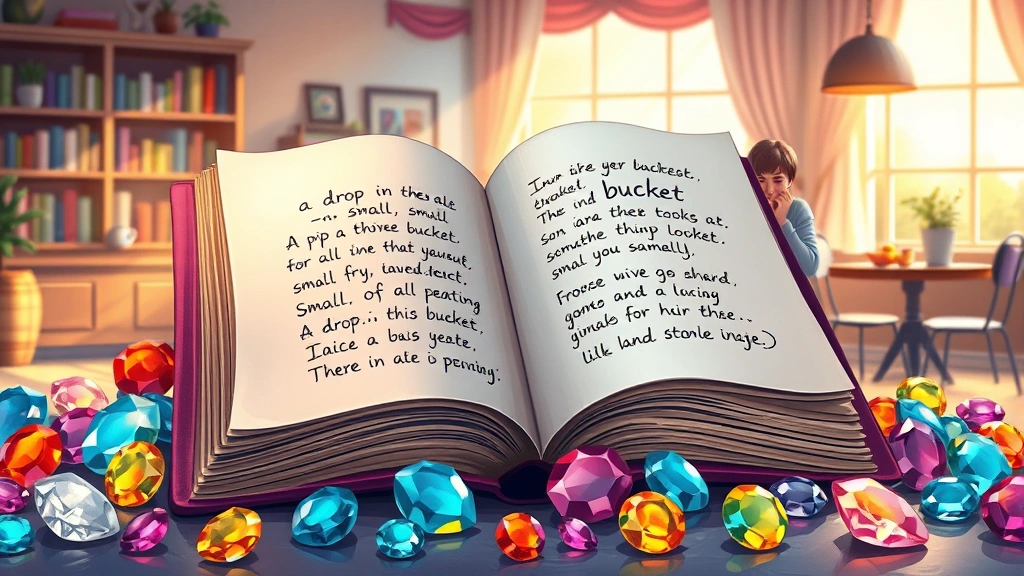
Common Pitfalls to Avoid
Even though idioms are fun, there are a few things to watch out for:
- Misinterpreting literal meanings: Remember, idioms rarely mean what their individual words suggest. "Small potatoes" isn't about tiny spuds!
- Using them in formal contexts: Some idioms are more casual than others. Be mindful of your audience and the setting. "A dime a dozen" might not fit a professional presentation.
- Regional variations: While many idioms are globally understood, some might be more common in certain regions. If in doubt, stick to widely recognized ones.
FAQs About Idioms for "Small"
You've got questions, we've got answers! Let's clear up some common curiosities about these fascinating phrases.
Q1: Why are there so many idioms for "small"?
A1: English, like many languages, loves to express nuances. "Small" isn't just one thing; it can mean insignificant, difficult to find, limited, or tiny in comparison. Idioms allow us to convey these specific shades of meaning with creativity and conciseness, making our language richer and more expressive.
Q2: Are these idioms used in everyday conversation?
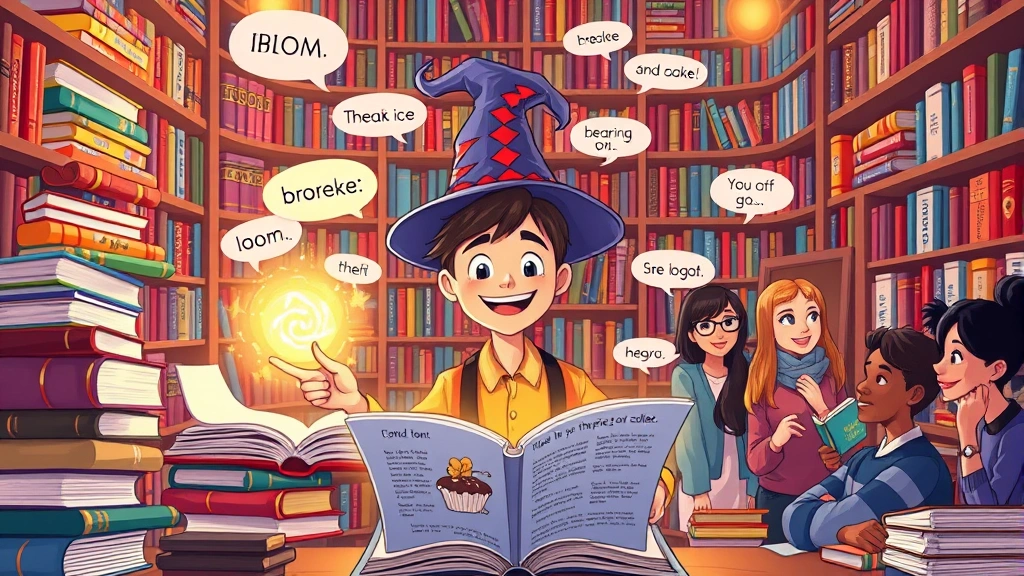
A2: Absolutely! Many of the idioms listed, like "a drop in the ocean," "small potatoes," and "in a nutshell," are very common in daily conversation among native English speakers. They add naturalness and color to speech, making you sound more fluent and engaged.
Q3: Can I use these idioms in formal writing?
A3: It depends on the idiom and the context. Some, like "in a nutshell" or "the tip of the iceberg," can be used in moderately formal writing, especially if you're aiming for a slightly more engaging tone. However, more casual idioms like "small potatoes" or "a dime a dozen" are generally best reserved for informal settings or creative writing. Always consider your audience and the purpose of your writing.
Q4: How can I remember all these idioms?
A4: Don't try to memorize them all at once! The best way to remember idioms is through consistent exposure and practice. Try these tips:
- Contextual learning: When you encounter an idiom, try to understand its meaning within the sentence or situation.
- Active recall: Test yourself by trying to use them in sentences.
- Flashcards: Create flashcards with the idiom on one side and its meaning/example on the other.
- Use them! The more you use them in conversation or writing, the more they will stick.
Q5: Are there any idioms that mean the opposite of "small"?
A5: Yes, definitely! Just as there are many ways to say "small," there are countless idioms for "large" or "important." Some examples include "larger than life," "the lion's share," "a big deal," or "a whale of a time." Learning them often helps reinforce the meaning of their "small" counterparts.
Q6: Do idioms change over time?
A6: Yes, language is dynamic, and idioms can evolve. Some idioms might become less common or even obsolete, while new ones emerge to reflect current culture and trends. However, many classic idioms have stood the test of time and remain widely understood and used for generations.
Q7: What's the difference between "a drop in the ocean" and "a drop in the bucket"?
A7: While very similar and often used interchangeably, "a drop in the ocean" generally implies an even more vast and overwhelming context, suggesting that the amount is truly negligible compared to the colossal whole. "A drop in the bucket" also means a very small amount, but the image of a bucket suggests a slightly smaller, more manageable container, even if the amount is still insignificant. The difference is subtle, and both convey the idea of a tiny, insufficient quantity.
Key Takeaways
- Idioms enrich your English: They add color, nuance, and naturalness to your communication, helping you sound more like a native speaker.
- "Small" has many shades: English offers a rich vocabulary of idioms to express various aspects of "smallness," from insignificance to limited resources.
- Practice makes perfect: The key to mastering idioms is consistent exposure, active listening, and regular practice in both speaking and writing.
- Context is crucial: Always consider the situation, your audience, and the formality of your communication when choosing which idiom to use.
- Don't be afraid to try: Embrace the fun of learning these linguistic quirks. They'll make your English journey even more exciting and rewarding!
So, there you have it! A comprehensive guide to 35 fantastic idioms for "small." We hope you enjoyed this deep dive and feel more confident about sprinkling these vibrant phrases into your English conversations. Which one is your favorite? Do you have any other "small" idioms you love? Share your thoughts and keep exploring the wonderful world of English!




